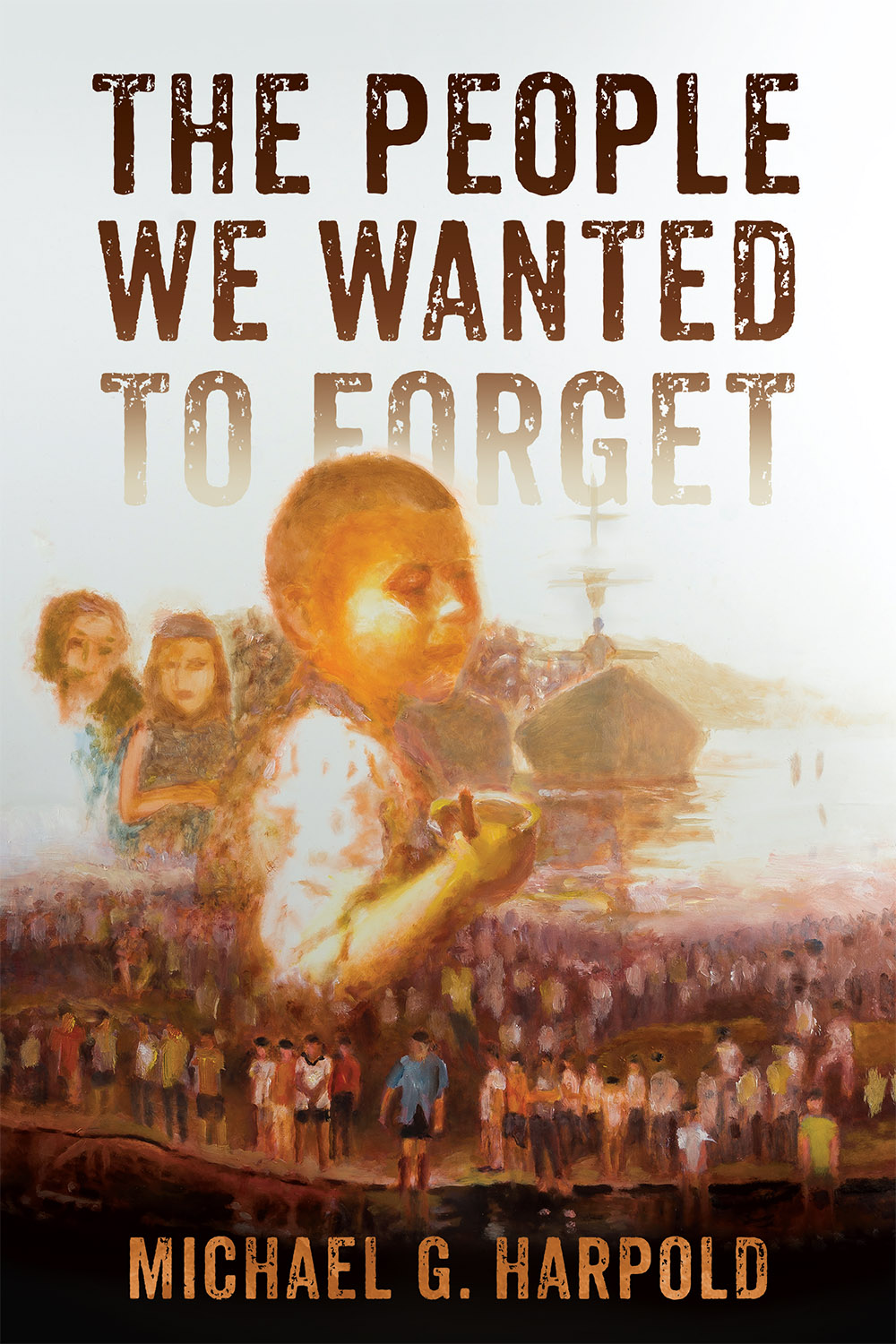Cover art by Ketchikan, Alaska artist David Rubin
THE PEOPLE WE WANTED TO FORGET
By Michael G. Harpold
After the last American left Saigon and 155,000 Vietnamese who left with them were resettled in the United States, Americans just wanted the Vietnam war put behind them. Many Vietnamese who stayed behind could not, and they continued their struggle of staying alive, now under new terms.
Starving, their crops and catches collectivized by the new Socialist Republic of Vietnam, over 1.5 million people fled with their families most in small fishing boats. But they sailed into an indifferent world. No country wanted them, most notably the United States. Faced with a growing, unwelcome population, the countries of first refuge along the periphery of the South China Sea forced the overcrowded refugee boats back onto the open ocean. Hundreds of thousands of Vietnamese perished.
On a Sunday morning in Thailand, Mike Harpold was on assignment at refugee camps in Southeast Asia to prepare a report for a congressional hearing on the boat people. Alerted by a doctor with Médecins Sans Frontières, Harpold rushed to the aid of thirty-four Vietnamese men, women, and children whose disabled boat was about to be towed out to sea by the Thai Navy and cast adrift—certain death for all aboard. He had ten minutes to come up with a way to save them.
What Harpold did next forced a change in US policy, encouraged Americans to once again look into their soul, and demonstrated how one person with integrity and courage can make the difference in the lives of thousands.
For a tale to restore your faith in humanity and America, The People We Wanted to Forget is a must read.
- Terry Pyles
You can also read about Michael G. Harpold's first book, Jumping The Line.
THE PEOPLE WE WANTED TO FORGET
By Michael G. Harpold
A TALE THAT WILL RESTORE YOUR FAITH IN HUMANITY AND AMERICA
Reviews
Social Media Feed
[fts_facebook type=page id=208527326604853 posts=1 title=yes title_align=left description=no show_media=bottom show_thumbnail=no show_date=no show_name=yes words=45 popup=no posts_displayed=page_only]
